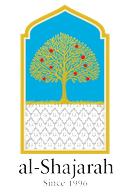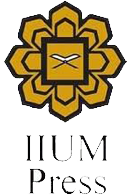MEDIEVAL MUSLIM SCHOLARS: TEACHERS, MISSIONARIES AND THEORETICIANS, QĀDI AL-NU'MĀN AS A CASE STUDY
DOI:
https://doi.org/10.31436/shajarah.v0i0.572Keywords:
Qādī al-Nu'mān, teachers, da’wah, theoreticiansAbstract
One distinct character of education in medieval Islam is the fact that
teaching and learning activities were not regarded by both the
shuyūkh (master scholars) and talaba or tullāb (students) as a
waẓīfah (job) for the former and potential source of income after
graduation for the latter. On the contrary, both segments took
teaching and learning as a noble mission in life, which promised
social veneration in this life and God’s reward in the other. Apart
from the religious drive, the dedication and zeal of both, the shuyūkh
and their tullāb was somtimes stimulated by sectarian motives. The
truth is that in those ages, it was customary for Muslim states,
whether from the Sunni mainstream or from the minority Shī’ato
manage and supervise intellectual activities, including institutions of
learning, curriculum, human capitals (scholars, and students) in a
flexible way. For instance, intellectual life was not run by one
particular office, although educational policies were largely
politicized in the case of the Fatimids. Due to such dynamic
intellectual ambiance, many prominent scholastic figures emerged
during this period and played a crucial role in the dissemination of
knowledge, religious propaganda and sectarian dogmatic debate.
This paper highlights the role and the contribution of medieval
scholars through the case of qādī al-Nu'mān, one of the most
influential and notable medieval Ismā’īli scholars who served under
the reign of the Fatimids. It also aims to analyze the complicated role
of thisscholar and his influence on the Intellectual life. The results of
this study showedthat al-Nu'māndevotedly served the Ismā’īli
mazhab with the heart of a candid believer and the mind of a sholar. He used his intellect and pen to defend the Ismā’īlī cause on many
fronts.


 Al-Shajarah:
Al-Shajarah: 
